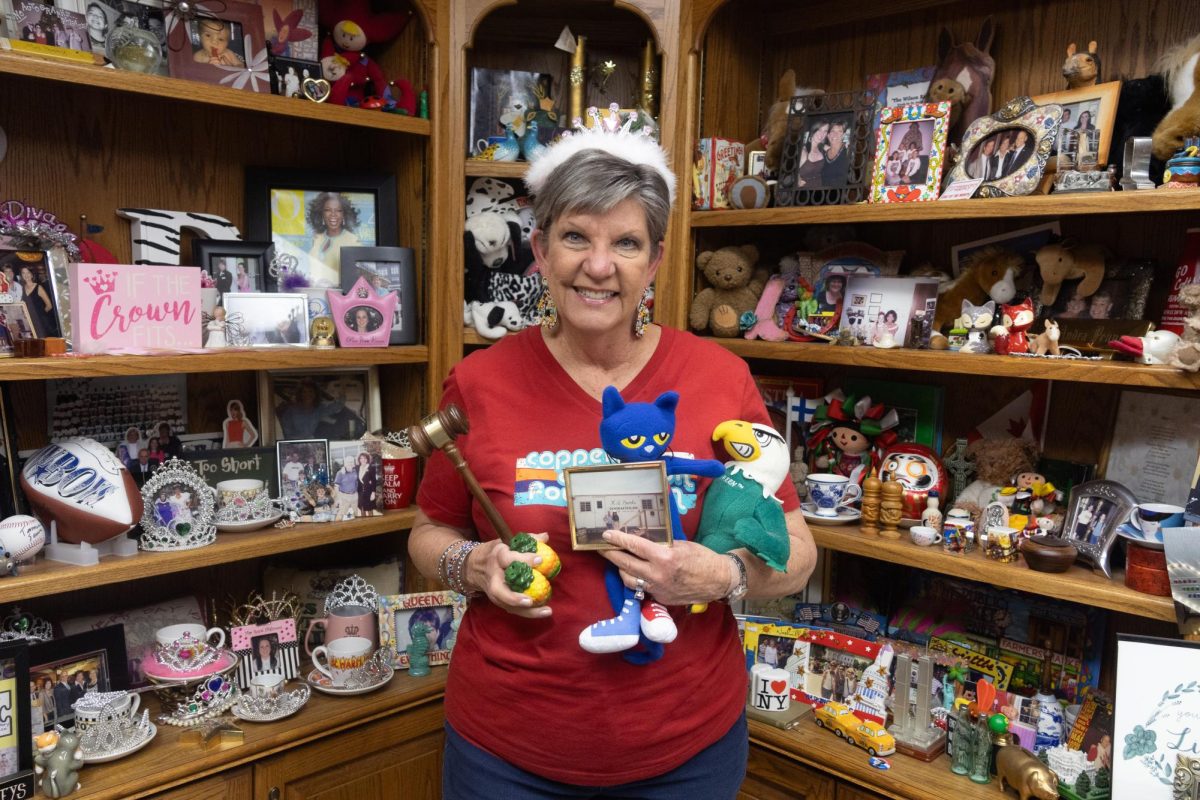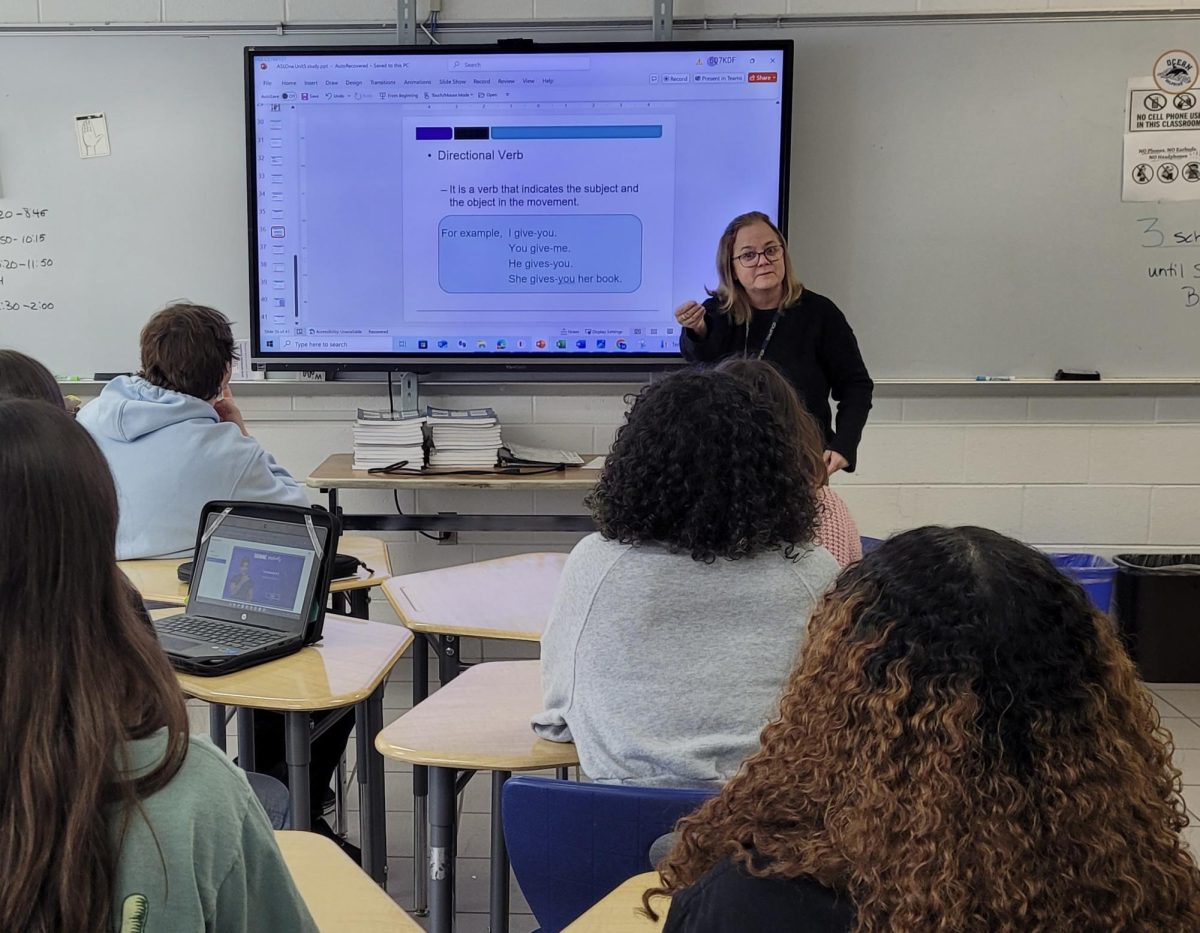Jackets emblazoned with letters worn by Greek life members are a sight familiar even to unwitting passersby at San Francisco State University. The letters proudly displayed on each member denote allegiance to one of the 49 Greek life organizations officially recognized by SFSU. Their unique hues and slogans add to the colorful mosaic of SFSU’s campus culture.
The number of Greek life organizations can make it hard to differentiate between them, particularly when varying groups may have different interests. Alongside the traditional Greek organizations, there is a lesser-known genre: women of color-interest sororities.
The history of Greek life in America is a storied one — the first fraternal organization was founded in 1776 in Virginia. It was called Phi Beta Kappa, which established the tradition of using Greek letters to name exclusive student groups. According to the first edition of Baird’s Manual of American College Fraternities, published in 1879, the pioneer Greek letter student society that laid the foundations for modern-day fraternities was Kappa Alpha, established in 1825 in New York.
It was also in 1825 that the first secret society for collegiate women was founded — known today as Alpha Delta Phi. It was the first Greek letter organization to call itself a sorority.
Due to Greek life’s exclusive and secretive nature, early fraternities and sororities were largely restricted to non-white potential members. Combined with a legacy of elitism and favoritism, non-white college students felt compelled to create spaces for themselves to build community.
According to Monika Brooks, an alumna of the Black sorority Zeta Phi Beta who has advised multiple California State University campus sorority chapters, the first historically Black sorority was founded in 1908 at Howard University. It was named Alpha Kappa Alpha and paved the way for the 1930 establishment of the Divine Nine — also known as the National Panhellenic Council. The Divine Nine comprises nine historically Black fraternities and sororities, including Zeta Phi Beta.
Erin Sanders, an active member of Zeta Phi Beta, said the founding of Black Greek life allowed college students to build networks previously inaccessible to the Black community.
“Back in that day… it was very hard for our community to really kind of branch out there, or just even be involved in things because of racism, colorism and just — there was a lot of division,” Sanders said. “So all of our founders within each [organization] stepped up to the plate to create a space where we can all come and feel comfortable.”
The formation of Black Greek organizations led other marginalized communities to establish themselves. Sigma Pi Alpha is a Latina-interest sorority whose SFSU chapter was chartered in 2003. Denise Ugarte, the chapter president, said the cultural differences between traditionally white sororities and WOC-focus groups are rooted in the marginalization of different communities.
“A lot of us are first-generation [college students] so we don’t have that support or advice to kind of fall back on from our families,” Ugarte said about the difference in Sigma Pi Alpha. “So we try to be there for each other.”
A sense of duty to their respective communities underscores much of the activities carried out by active members in WOC-interest sororities. In the Asian American sorority alpha Kappa Delta Phi, one of its “pillars,” or official objectives, is Asian American awareness. That desire to explore culture and build community networks has informed much of the sorority’s activities since the chapter’s establishment at SFSU in 2017, according to chapter president Kinsey Cardema.
“I can say that we like to remind each other of our roots, so we hold these cultural events,” Cardema said. “We always remind ourselves [of what] our culture is.”
In addition to building community, Alpha Kappa Delta Phi is also working to build professional networks for Asian American women. Cardema said the sorority is aware of the low representation of Asian American women in the workforce and wants to change that.
“We help our sisters — like, for their future career, we’re helping them [learn] how to represent Asian culture in their future careers and higher-up jobs,” Cardema said.
The responsibility of uplifting a marginalized community might appear daunting, but Cardema said a sense of duty to the Asian American community removes hesitation on her part.
“I’ve never felt the pressure because I feel like it’s what we want to do,” Cardema said. “We want there to be more Asian women when we go out to places or in the jobs that we want to do. I feel like we just want to make sure there’s more representation of us, and I don’t think we’ve ever felt the pressure because we want to.”
According to Brooks, who is still an active dues-paying member of Zeta Phi Beta despite being an alumna, non-white sororities are held to a different standard than their white counterparts. A sense of obligation to culture and community may be a contributing factor, but their lived experiences as women of color have made codes of conduct and behavior stricter for non-white sororities.
“They don’t have to worry about negative stereotypes. They don’t have to worry about the angry Black woman [stereotype]. They don’t have to worry about being killed by the police,” Brooks said. “They don’t have to worry about all these things that have happened to people of color. That means that their social actions may look different.”
Brooks said that the negative stereotypes about Black people have resulted in different standards of conduct for Black Greek organizations, which can extend to non-white sororities and fraternities as well.
“But that’s because there’s a stereotype attached to how Black people behave,” Brooks said. “To me, it’s a double standard, and I hate it. And most of the time, I fight it, but white women or white men don’t have that worry.”
Greek life at SFSU has not traditionally had a large impact on campus culture due to its status as a commuter school. However, according to Shelby Vasallo, the president of Latina sorority Lambda Theta Nu, it used to be different.
Lambda Theta Nu was established at SFSU in 2007 when Vasallo said Greek life was more prominent on campus.
“There was this huge presence of Greek life on campus. They did a lot of community building — not just within our chapter, but also with other Greeks [organizations],” Vasallo said. “And it was just more vibrant. Everybody was more interested in Greek life back then.”
Vasallo said that her sorority chapter and others on campus are making an effort this semester to connect more with other Greek organizations to raise membership and create a more unified campus culture.
“We are trying to expand on the way that we kind of present ourselves on campus,” Vasallo said. “We’re having a lot of socials with a lot of Panhellenic organizations, and we’re trying to go out and support everyone and anyone that is having an event.”
This desire to build community between the different sororities on campus echoes among members of several chapters, including Sanders.
“I definitely think I would love to create more unity on campus,” Sanders said. “Sometimes I feel like Greek life can be — since there are so many different organizations, we can all get a little bit in our own head[s] and our own little bubble[s] sometimes.”
Ultimately, the move to connect with other groups on campus reflects what has been a driving force in sorority life since the inception of the first sisterhood—the desire to prove themselves, build communities and networks, and navigate how to insert themselves in a world that has been at large unwelcoming.
“We’re all connected; that’s one thing that’s just beautiful to me,” Sanders said. “Because I can be walking down the street and if I see somebody with the same shield as me, we can just spark conversation — we can just start talking. [If] I see you with the same letters as me, it’s an automatic connection.”
This story was originally published on GoldenGateXpress on March 11, 2024.







































